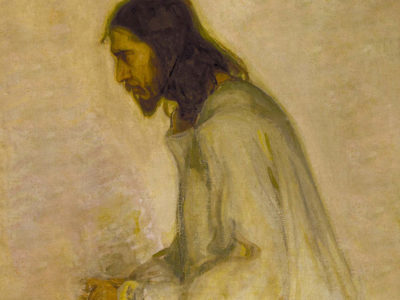IT’S HARD TO WARM UP TO GOD in the Old Testament, many Christians admit. He doesn’t seem like a Jesus sort of a God.
Jesus forgives a woman caught committing adultery even though Bible writers say God ordered people like her stoned to a bloody pulp.
- Jesus: “I don’t condemn you….Go! From now on don’t sin” (John 8:11).
- God’s law: “The man and the woman who have committed adultery must be put to death” (Leviticus 20:10).
My Bible study class is in a four-week series on the topic of God. We’re trying to get a better idea of what he’s like and what he wants.
On Sunday we decided to tackle the Bad God/Good God question. The seemingly Mean God of the Old Testament versus the Loving God we read about in Jesus of the New Testament.
Part of the problem is that Bible writers quote God saying, “I am the LORD, and I do not change” (Malachi 3:6).
Well, he sure seemed like a different person in Jesus. That’s the general take on the matter.
So in the Bible study class we decided to explore how Jesus was like the God of the Old Testament – to see if it’s true that the Apple doesn’t fall far from the Tree.
The class came up with lots of ways Jesus reflects his Father.
They picked up on the anger theme, with Jesus flipping tables of businessmen selling their products in the Jerusalem temple (John 2:15).
They added that Jesus, like his Father, got grouchy from time to time.
Maybe “stern” is a better word.
Whichever, he got especially upset with Bible scholars and preachers. Jesus pretty much told them where to go: “You are snakes!…You will all be judged guilty and go to hell!” (Matthew 23:33).
There’s another way Jesus resembles his Father.
It’s harder to find, but it’s a character trait hidden in God’s name: “I Am,” (Exodus 3:14).
What in the world is that supposed to mean? It certainly seems cryptic.
Does it mean “I am the boss”? Or maybe “I exist.” Or possibly “I am in everything and a part of everything.”
Who knows?
Jesus seemed to pick up on that name and even explain a bit about what it means. He did that when he described himself in sermons that featured dramatic one-liners that link him to I Am.
I am . . .
- The bread of life (John 6:35). The source of every believer’s spiritual life.
- The light of the world (John 8:12). The source of spiritual insight and direction.
- The gate for the sheep (John 10:7). The doorway into the kingdom of God.
- The good shepherd (John 10:14). The one who knows his sheep and lays down his life to save them.
- The resurrection and the life (John 11:25). The one who not only gives people life after death, but the one who is the source of eternal life.
- The way, the truth, and the life (John 14:6). The one who not only shows people the way to God and salvation, but the one who is the way. No one can reach the Father except through Jesus, the bridge between heaven and earth.
- The true grapevine (John 15:1). The source of spiritual nourishment for everyone connected to him in faith, just as a grapevine feeds water and nutrients to the branches.
Excerpted from The Complete Guide to the Bible, page 354.
Got any other ideas about how Jesus and the Old Testament God are alike?
For more about God
- Why doesn’t God say hello?
- Where is God when bullets fly?
- Book: “God the Father,” The Complete Bible Handbook, pages 129-131
- Book: 100 Tough Questions about God and the Bible


Leave a Reply